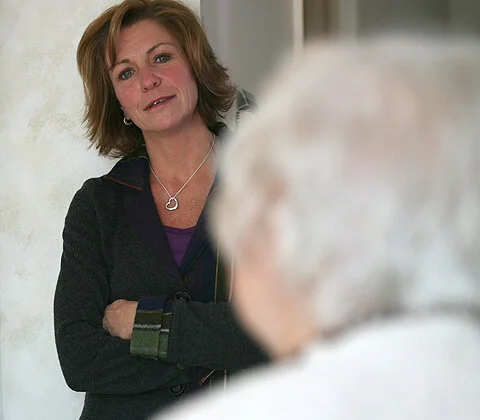Alzheimer's Heaps Unparalleled Stress On Caregivers
by Janice Lloyd for USA Today:Alzheimer's Association president Harry Johns is attending meetings Tuesday and Wednesday in Washington, D.C., where the details of the government's first national plan to address Alzheimer's disease will be discussed. In addition to finding a cure for the disease, another goal is finding support for caregivers. Here, Johns discusses stress on families.Q: Five million adults age 65 and over have Alzheimer's. How are most of their families coping with this disease?A: Many people mistakenly think Medicare will help, and people can go into nursing homes. The truth is, 70% of Alzheimer's patients live at home and are being cared for by about 15 million unpaid family members and friends. The stress on the caregiver can be very high. No other disease has this kind of impact on the caretaker. Many have depression. It can become around-the-clock care.Q: Your mother, Rozella Johns, had Alzheimer's disease. What was that like for you as a caregiver?A: I know as a son that it is the most heartbreaking experience in the world. The disease is, of course, progressive and degenerative. Problems you experience today only get worse tomorrow.Q: What is it like watching someone you love as the disease starts to take hold?A: My brother and I had to watch our mother react to her diagnosis. She hated the diagnosis. Then to see her in the early stages, for instance, not being able to balance her checkbook, was just awful. And that's the early part.Q: What is one of hardest things for a caregiver as the disease progresses?A: My mother started getting lost while driving. I had to have a conversation with her about not driving anymore. It's the single worst conversation I've ever had to have in my life. She wanted to keep her keys for an emergency.Q: How long did she have the disease?A: One of the difficulties now is getting an early diagnosis. Our family suspected for a number of years that she had Alzheimer's but couldn't convince her to seek a diagnosis from her primary doctor, who had been her doctor for a number of years. When she finally went to another doctor, she was immediately diagnosed with Alzheimer's. She had it a couple years and died in 2007.Q: What is a common reaction you hear from caregivers?A: I was talking to someone recently who is experiencing it right now with a parent. This individual said to me, "It's not my mom anymore." I understood. I tried to provide comfort.

